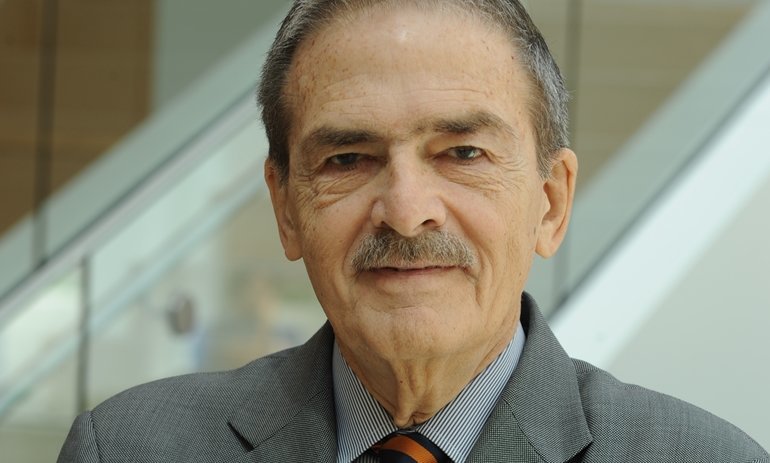Trump continuing ruthless assault on world order

TEHRAN–Marvin Zonis believes that the coronavirus will be extraordinarily disruptive of current world order and the US President continues his ruthless assault on the world order.
The current coronavirus pandemic ravaging every corner of the world and many states are desperate in the face of the coronavirus pandemic. Nations and governments are panicking and the economy has already collapsed. This crisis is expected to deepen more and more without a serious global willingness and cooperation.
Due to the great impact of the on the world from different aspects, many believe that changes to existing world order and international relations are inevitable in the post corona era.
Mehr News Agency in an effort to make the dimension of the changes to the existing world order by coronavirus clearer has reached out to international experts and has discussed the issue with them.
Following is our interview with Marvin Zonis, Professor of international political economy and leadership at the University of Chicago.
What will be the effects of coronavirus on the existing world order?
The Coronavirus will be extraordinarily disruptive of the current world order. President Trump continues his ruthless assault on the world order by refusing to extend American leadership to other stricken countries. Simultaneously, China is making every effort to replace the U. as the world leader. Yet things will not go smoothly for China. Global supply chains are expanding beyond China to other countries, primarily in East Asia. Many countries that have accepted huge loans from China from its Belt and Road Initiative will find it impossible to remain current on those loans. China will be faced with the dilemma of allowing defaults or taking ownership over failed projects across Asia, Africa, and even Europe. Perhaps worst of all, countries primarily in Sub-Saharan Africa will experience threatening political unrest from their failed economies and massive numbers of virus deaths. The combination will drive flows of massive numbers of refugees seeking to enter countries in the developed world.
The existing world order is majorly based on liberalism and to some extent on realism approaches. What are the deficiencies of the liberalism and realism approaches revealed by the outbreak of coronavirus?
There are times in which markets fail. The coronavirus has certainly produced one of those times. It is very hard to imagine that post-virus, the liberal order will remain unaffected. Huge government interventions in the economies of the country after country are unsustainably large. They will certainly be drastically reduced over time. But it is also likely that the interventions of governments in their economies will be considerably greater than pre-virus.
The outbreak of the virus also showed that militaristic economies also are not able to maintain the security of nations and governments in post-corona era. What do you think of this?
Any country which believes its security can be assured solely through military means is surely delusional. But then again, I do not know of a single country that believes this. But we certainly will see a change in the United States. Since the al Qaeda attack on the United States on September 11, 2001, the US has focused on threats to its well-being from terrorism. That is likely to change to a great extent to preparations to deal with future global pandemics. There will surely be more pandemics, especially if the world fails to police Chinese food markets to eliminate animals from whom new viruses will pass to humans in the future.
If we accept that the post-corona world order will be different from the existing one, do you think that the changes will be fundamental ones?
If world leaders are not brain dead — which many appear to be — there will be fundamental changes. But so many countries have leaders in complete denial (Bolsonaro in Brazil, for example) or have public bureaucracies so incompetent (Nigeria, for example) or are mired in such corruption (Iraq, for example) that it is highly unlikely they will be able to come to terms with the new reality.
This interview was first published in Mehr News Agency.
Leave a Comment